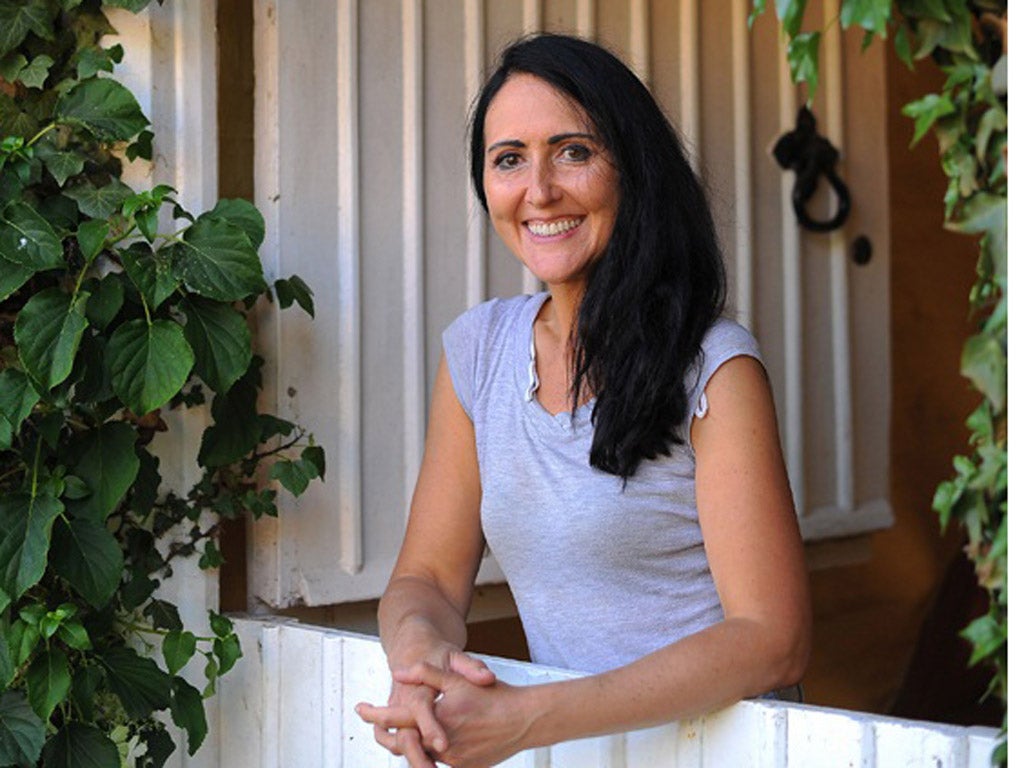For her own good, we should stop reading Liz Jones
Reading her despair, I’m aware of a niggling sense of personal shame

She has been anorexic for most of her adult life. She had her breasts removed before she was 30. Her private life is a ghastly mêlée of unkindness, anger and betrayal, leaving her with few friends. She regularly declares her profound and utter misery with her life and who she is.
In a saner, more humane world, there would be serious concerns about the writer Liz Jones, whose self-loathing is apparently boundless. Instead, her downward spiral is followed with avid enthusiasm.
Promoting her autobiography Girl Least Likely To, she told the Sunday Times’s Lynn Barber this weekend: “On my puppy’s life, I’ve never had a day of happiness.” In her own column, she described herself as “old, broke, overworked, depressed, lonely, barren, deaf, friendless, in possession of cellulite and a post-menopausal beard”.
She signed off with the showy flourish of despair in which she specialises: “I seriously don’t think I can do this any more.”
The public angst of a writer: does it really matter? There is, after all, nothing new in the famous showing off their personal scars to advance their careers. Yet, reading those words, I was aware of a niggling sense of personal shame.
Jones is not a particularly good or interesting writer, and seems to be pretty much devoid of humour. I read her occasionally to see how far she will go, how horrible her life will become, and I suspect I am not alone. It is vulgar, reality-show journalism, sometimes horrifying, now and then unwittingly funny. Reading it is like watching a slow-motion car crash, uneasily aware that you, the viewer, are causing it to happen.
The problem with having a disastrous personal life as your unique selling point is that, in order to keep its boggling audience satisfied, it has to get worse. In the early days of emotional exhibitionism (patron saint: Princess Diana), the revelations were comparatively tame. Over the past decade, though, real pain has begun to provide the excitement and entertainment once derived from stories on TV. These days, dysfunction is hot. Any self-respecting talent-show contestant knows that, to improve your chances, you have to include some hell-and-back melodrama in your personal biography.
In a sense, the writings of Liz Jones are a masterclass in how to make self-hatred pay. She complains of loneliness, but then, as soon as anyone extends a helping hand, she makes sure that she sneers at them or exposes some aspect of their lives that will ensure their enmity.
If it were all a journalistic game, it would matter little. The creepy part of Jones’s success, and the reason why she is such an appalling example to would-be writers, particularly women, is that writing is not simply the reflection of a ghastly life; the ghastliness has actually been created for the writing. “I want to do the best I can for the paper,” she says rather sadly. “Because otherwise I think they’re going to sack me. I wish I was secure enough to hold something back.”
That is the most miserable confession of all: the words matter more than the life. The last two decades have seen the rise of society’s Great Grotesques, larger-than-life, narcissistic public figures – always women – whose extraordinary private lives and views play an important part in their fame and prominence. Those, like Katie Price and Julie Burchill, who have played the part better than most, have given the impression of an inner strength. Once the interview is done or the copy filed, normal life can be resumed.
The case of Jones is different. Personal misery is there to give readers their thrill for the week. There is, it seems, nothing contrived, cynical or planned about it. Readers and the writer are involved in a tacky, destructive game. She serves up her own dysfunction; we gawp hungrily at it, willing it to get worse.
You don’t write, you don’t call...
It is rare to turn to China for guidance on how to run family life. The small matter of its one-child policy suggests rather more central control than most of us would appreciate. All the same, China’s new Law and Protection of Rights and Interests of the Aged may have something to recommend it. The legislation, introduced last week, obliges the offspring of people of 60 or older to care for their parents’ financial and spiritual welfare.
If sons and daughters fail to keep in touch with their parents (the number of required annual visits is unspecified), they can be taken to court by the oldsters. Several inter-generational cases are already under way. The Chinese government says it is “raising awareness” of a deepening problem, but others will remember Martin Amis’s prediction of a coming civil war between the young and the old. Suddenly that idea seems rather less fanciful than it once did.

Join our commenting forum
Join thought-provoking conversations, follow other Independent readers and see their replies